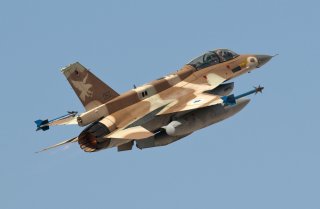The Israel vs. Hamas Gaza War: Six Months In
Despite rumblings of disagreement, the war in Gaza has also led to unprecedented cooperation between Israel and the United States.
Israel’s Defense Minister Yoav Gallant flew to Washington this week for key meetings with American officials. He met with Secretary of State Antony Blinken, National Security Advisor Jake Sullivan, and Secretary of Defense Lloyd Austin. The discussions focused on several significant developments, including Israeli procurement of more munitions and warplanes as well as the general trajectory of the war in Gaza as it enters its six-month mark.
Of the 250 hostages taken by Hamas on October 7, 134 remain in Gaza. Israel has waged a long campaign in Gaza, seeking to defeat Hamas and return the hostages. However, the campaign has shown signs of slowing. For instance, Israel has had to re-enter neighborhoods in northern Gaza where it had previously fought in November and December. Hamas has sought to return to the north. In addition, Hamas launched rockets at the Israeli cities of Ashdod and Ashkelon on March 25, showing that it still has some rocket capabilities remaining in Gaza.
There are two processes now taking place in Gaza. First, Hamas continues to hold out in areas such as Rafah city on the border with Egypt. Hamas has numerous battalions remaining, including thousands of fighters. Another process is Israel’s shift in tactics to conducting raids in Gaza designed to catch Hamas members off-guard. For instance, a multi-day raid at Shifa Hospital has netted almost 800 suspected terrorists and eliminated 180 others. This is a setback for Hamas. However, it remains to be seen if this will cripple Hamas in northern Gaza or if the group can continue to replace losses. Hamas’ leader, Ismail Haniyeh, was in Iran on March 26, and he says that Hamas is persevering and winning in Gaza and the region.
In Washington, Gallant discussed Israel’s plans for an operation in Rafah. A report at the Department of Defense said that “a significant portion of the meeting focused on Israel’s concept of operations in that city, with Austin expressing that the United States’ goal is to help Israel find an alternative to a full-scale military operation that could potentially endanger the city’s civilian population, according to one senior defense official familiar with the meeting.” The United States appears to support a “phased” operation in Gaza that would enable civilian areas to be slowly evacuated. Israel has said it is drawing up plans, but the meetings in Washington appeared to indicate that those plans need more development.
Nevertheless, the Gallant meetings in Washington symbolized a critical new development in the Gaza war. Gallant has been a key figure in the war, keeping a laser focus on defeating Hamas and also preparing for possible escalation with Hezbollah in the north. He has largely isolated the defense ministry in Israel from political controversy. For instance, when there was international pressure on Israel about the need for a ceasefire before Ramadan, the defense minister and the IDF kept pressing forward in Gaza. When the United States abstained from a UN resolution on a ceasefire in Gaza, Gallant went to Washington. At the same time, Israeli Prime Minister Benjamin Netanyahu canceled the visit of other Israeli officials. Gallant also brought an extensive team to Washington, illustrating the multiple layers of U.S.-Israel cooperation that were on the menu of his meetings. What comes next in Gaza and northern Israel regarding the Hezbollah threat will be framed by the meetings Gallant held in late March.
Gallant’s trip also underscored several other key strategies of Israel in the upcoming months. The goal of the war in Gaza continues to be the freeing of the hostages and a decisive victory over Hamas. Gallant believes that if there is not a clear, decisive victory over Hamas, then this could bring Israel closer to a major conflict in the north with Hezbollah. This is because Hezbollah and its Iranian backers will not be deterred unless they see what Israel can do to Hamas. In addition, Gallant believes that the war in Gaza will impact the region in decades to come, his office noted in a statement.
Iran also believes the current war in Gaza will change the region forever and is symbolically part of a larger shift towards a new world order. This means that Iran sees the October 7 attack as a shot in a larger war. Iran is exporting drones to Russia, for instance. In addition, Iran has joined economic groupings such as the SCO and BRICS, which are linked to China or Russia. The war in Gaza, in Iran’s view, can reduce the chances for more normalization agreements between Arab states and Israel, such as the Abraham Accords. In addition, Iran has shown that it can operationalize groups like the Houthis to carry out attacks. Iran backed the Houthis to interdict shipping in the Red Sea, creating a huge crisis and bringing the U.S. Navy into the waterway to defend ships.
The war in Gaza has also led to unprecedented work between Israel and U.S. Central Command. The United States has backed airdrops over Gaza, bringing in thousands of meals for Gazans. In addition, the military is sending ships to help build a floating dock off the coast of Gaza. The ships are making their way slowly across the Atlantic at a speed of roughly eight knots, meaning it will take weeks for them to reach the coast of Israel. Israel’s IDF spokesperson, Rear Admiral Daniel Hagari, said on March 27, “In all my years, I cannot recall such extensive cooperation as we currently have with the U.S. Central Command, encompassing the entire military and the intelligence services. Such collaboration has not existed previously. We are experiencing unprecedented levels of intelligence coordination.”
About the Author: Seth Frantzman
Seth Frantzman is the author of Drone Wars: Pioneers, Killing Machine, Artificial Intelligence and the Battle for the Future (Bombardier 2021) and an adjunct fellow at The Foundation for Defense of Democracies.
Image: Shutterstock.com.


